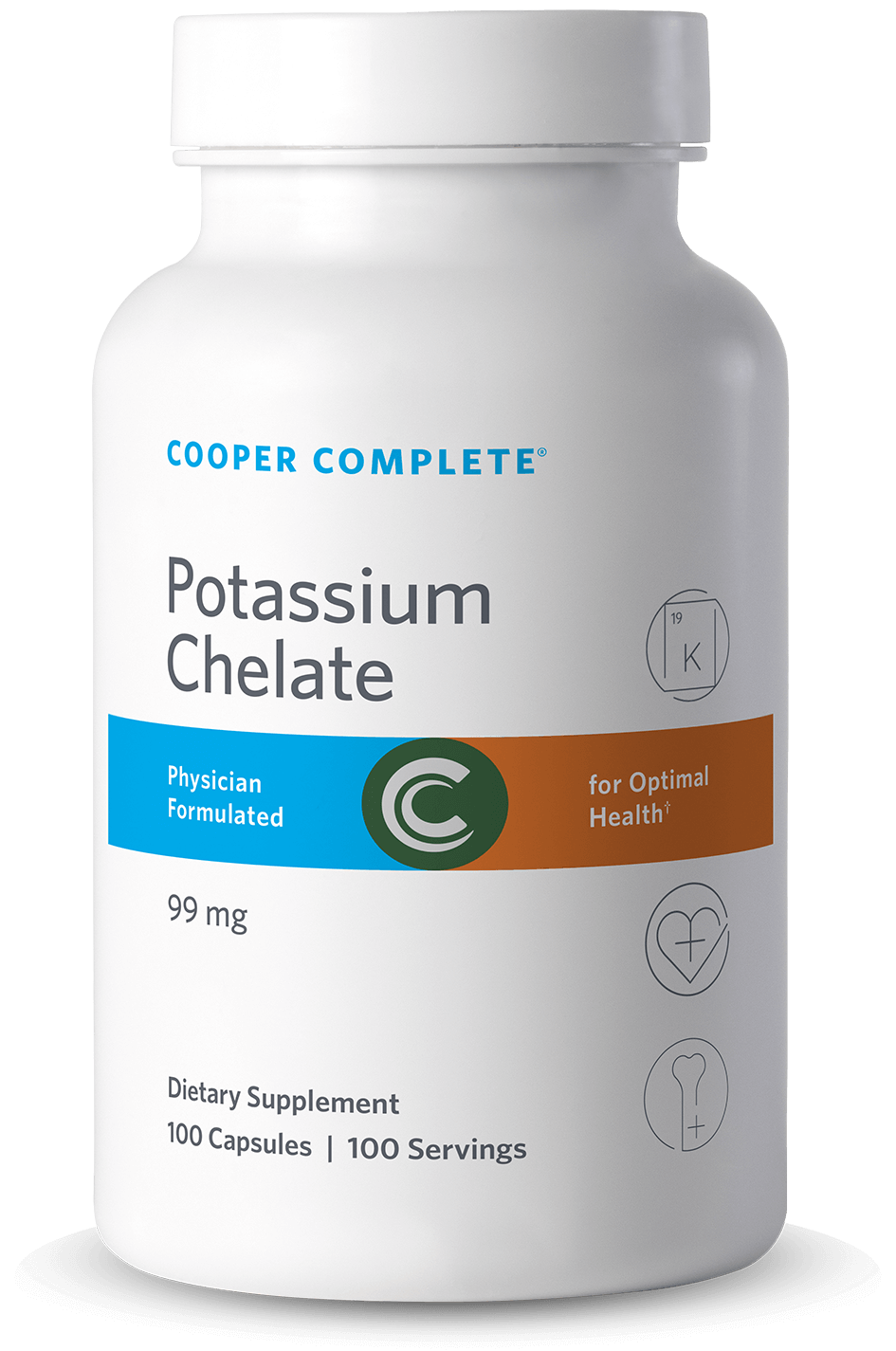Potassium for Heart Health, Blood Pressure, and Cramps: What You Should Know

Potassium is an essential mineral that plays a key role in heart health, muscle function, and blood pressure regulation†. While it’s often linked to preventing muscle cramps, research shows it is also important for heart health and overall cardiovascular function†.
How Potassium Supports Heart Health†
Balancing Sodium and Blood Pressure†
According to the Centers for Disease Control (CDC), approximately half of all adults in the U.S. suffer from high blood pressure. High blood pressure is called the “silent killer,” as it often shows no signs or symptoms. In fact, many people don’t even know they suffer from it.
The good news? A diet rich in potassium and low in sodium can help lower blood pressure†. Potassium works by reducing the impact of sodium and helping the body flush out excess sodium through urine. It also relaxes blood vessel walls, contributing to healthier blood flow†.
Studies show that higher potassium intake is associated with reduced risk of stroke, heart disease, and other cardiovascular conditions†.

99 mg Potassium Complex Supplement
Cooper Complete® Potassium Complex Supplement contains 99 mg of potassium to support already normal blood pressure, muscle-skeletal function, and nerve impulses.†
$16.48 Add to cartPotassium, Magnesium, and Cardiovascular Function†
Magnesium helps regulate potassium and calcium movement across cell membranes. Together, these minerals support nerve transmission and muscle contractions, including the heart muscle†.
Adequate magnesium allows potassium to support better nervous system signaling and muscle relaxation, key processes in maintaining healthy blood pressure†.
Potassium and Muscle Cramps
Myths About Potassium and Cramps
While potassium deficiency has long been blamed for exercise-related cramps, research suggests that fatigue and overactive nerves may be the more likely culprits. Yet, stretching, not eating a banana, is the best short-term strategy to relieve a muscle that is actively cramping.
How Potassium May Help Prevent Cramps†
Potassium plays a role in nerve function, which helps regulate how muscles contract and relax†. Electrolyte imbalances can overstimulate tired muscles, making cramps more likely†.
While potassium-rich foods may not stop a cramp in progress, they contribute to overall muscle function and may help reduce cramping when consumed consistently†.
Foods High in Potassium
Looking to increase your potassium intake? Reach for leafy greens such as kale, spinach and arugula, which are good sources of potassium. Other foods high in potassium are listed below.
| POTASSIUM IN FOODS | |
|---|---|
| FOOD | AMOUNT PER SERVING |
| Apricots | 755 mg |
| Lentils | 731 mg |
| Acorn Squash (1 Cup) | 644 mg |
| Prunes | 635 mg |
| Baked Potato | 610 mg |
| Orange Juice(1 Cup) | 496 mg |
| Spinach (2 Cups) | 334 mg |
Potassium Intake Recommendations
According to the National Institutes of Health (NIH), women aged 19+ should aim for 2,600 mg of potassium daily, while men aged 19+ should aim for 3,400 mg.
Many people can meet this through a healthy diet rich in vegetables, fruits, legumes, and whole grains. When diet alone isn’t enough, a multivitamin or potassium supplement may help fill gaps†.
Potassium Supplements from Cooper Complete
- Original Multivitamin contains 400 mg of potassium
- Potassium Complex provides 99 mg of potassium per tablet†.
Final Thoughts
Potassium plays an essential role in supporting cardiovascular function, maintaining healthy blood pressure, and aiding normal muscle and nerve activity†. While diet is the best way to get all the potassium we need, supplements can help fill nutritional gaps when needed†.
If you’re considering adding potassium to your supplement routine, talk with your physician or health care provider about whether it’s an appropriate solution for your specific health profile.
About the Author: Jill Turner is the President of Cooper Complete® Nutritional Supplements, where she oversees product development and customer experience. She enjoys writing about vitamins, supplements, and preventive health to help consumers make informed, science-backed decisions.
